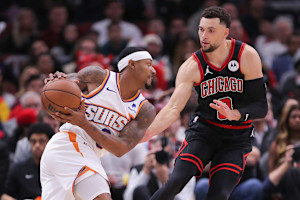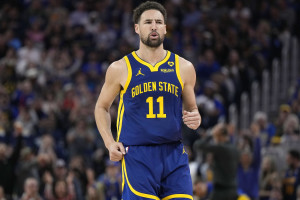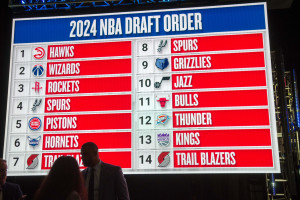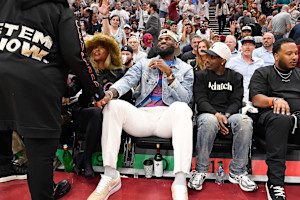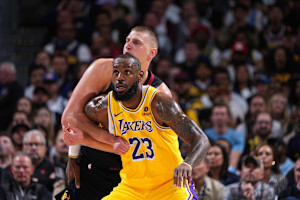NBA Exec Explains Strategy of New CBA Rules on Salary Cap Spending Before Free Agency
June 24, 2024
The financial crunch of the new NBA collective bargaining agreement will rear its head this summer, but at least one executive isn't feeling too bad about the changes.
"The NBA is not telling front offices that they have to break up their teams," one team executive told ESPN's Bobby Marks and Tim Bontemps. "What they are saying is there are not only financial consequences but also severe restrictions in how you can add outside of your own players."
By far the biggest hurdle in the new CBA is the addition of a second luxury tax apron, which severely restricts the roster mobility of teams that spend past that number. Second-apron teams are not allowed to aggregate salaries in trades, use their taxpayer midlevel exception, sign players on the buyout market, execute sign-and-trades or use cash in trades.
In addition, teams that are in the second apron three times within a five-year window will have their draft picks even years into the future moved to the end of the first round.
The new rules have created a scenario whereby even the richest teams are concerned with going over the second apron. The Golden State Warriors, who have long flouted luxury tax rules, have taken a hardline stance in contract talks with Klay Thompson and are allowing their All-Star guard to hit free agency. That almost certainly would not have happened under the previous CBA.
While money is certainly no object, roster flexibility if paramount to building a championship team. If you're willing to go over the second apron, the front office has to be 100 percent certain they already have a championship-caliber roster in place. There is far too much money being spent on role players in the modern NBA for players to make themselves available for the minimum, which is the only real avenue second-apron teams have to improve.
B/R Recommends












